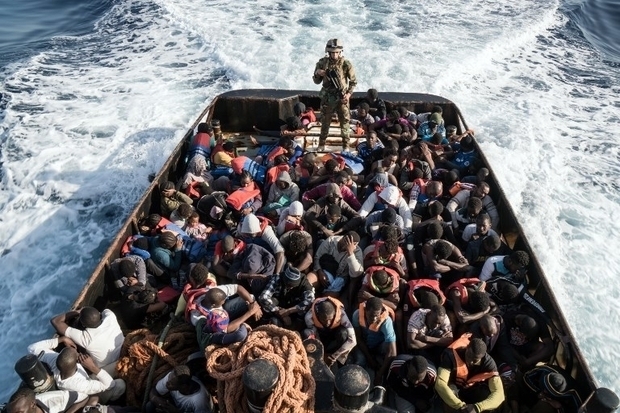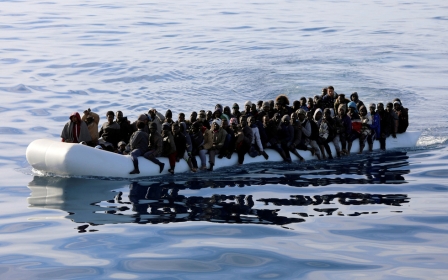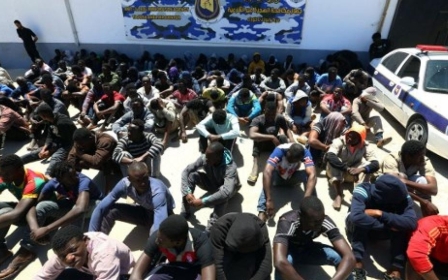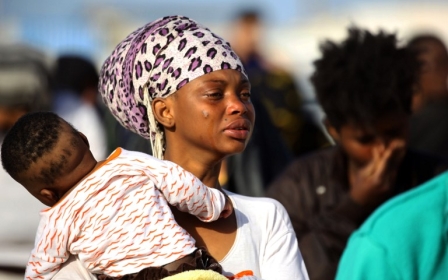UN extends mandate to fight people-smuggling off Libya's coast

The United Nations Security Council renewed a programme that allows a European Union naval force to search and seize vessels off the coast of Libya that are believed to be trafficking migrants to Europe.
Proposed by the UK, all 15 members of the Security Council voted in favour of the extension on Wednesday afternoon.
The programme will remain in force until 3 October 2019.
The resolution calls for "an end to the ongoing proliferation of, and endangerment of lives by, the smuggling of migrants and trafficking of persons in the Mediterranean Sea".
It gives countries and agencies the ability to intercept, search and seize vessels that are believed to be smuggling migrants between Africa and Europe.
The vote to extend the programme, known as Operation Sophia, came after earlier disagreements with the United States over the phrasing of the Security Council resolution, diplomats told AFP.
The US had wanted to remove parts of the text that it deemed were too easy on migration, the diplomats said.
"Too many migrants, many of them women and children, continue to risk their lives to try to cross the Mediterranean in the hands of smugglers,” said Antoine Michon, the political coordinator of France's mission to the UN.
Mediterranean crossings becoming deadlier
The treatment of African asylum seekers in Libya has drawn international condemnation after it was revealed that European countries were pushing migrants back to Libyan detention centres rife with abuse, torture and other inhumane treatment.
In early September, the UN Refugee Agency (UNHCR) released a report that found that while the number of Mediterranean crossings was down, they had become deadlier.
In the central Mediterranean, one out of every 18 people crossing to Europe died or went missing between January and July. That's up from one death for every 42 people over the same period a year earlier.
“With the number of people arriving on European shores falling, this is no longer a test of whether Europe can manage the numbers, but whether Europe can muster the humanity to save lives," said Pascale Moreau, the director of UNHCR's Europe bureau.
Between January and August, at least 10 incidents were recorded along the central Mediterranean route in which more than 50 people died, the UN said in its report. Most of the incidents occurred after boats had left from Libya.
In June, about 220 people drowned off the Libyan coast after their boat capsized on its way to Europe.
“These tragic deaths are a reminder that wars and poverty continue to drive people to take desperate journeys that cost them their life savings, their dignity and ultimately their lives,” said Filippo Grandi, the UN High Commissioner for Human Rights, at the time.
“With record numbers of people on the run, it has never been more urgent to address root causes, improve conditions in Libya and other countries along the route, provide safe alternatives and, always, rescue people at sea," Grandi said.
New MEE newsletter: Jerusalem Dispatch
Sign up to get the latest insights and analysis on Israel-Palestine, alongside Turkey Unpacked and other MEE newsletters
Middle East Eye delivers independent and unrivalled coverage and analysis of the Middle East, North Africa and beyond. To learn more about republishing this content and the associated fees, please fill out this form. More about MEE can be found here.




